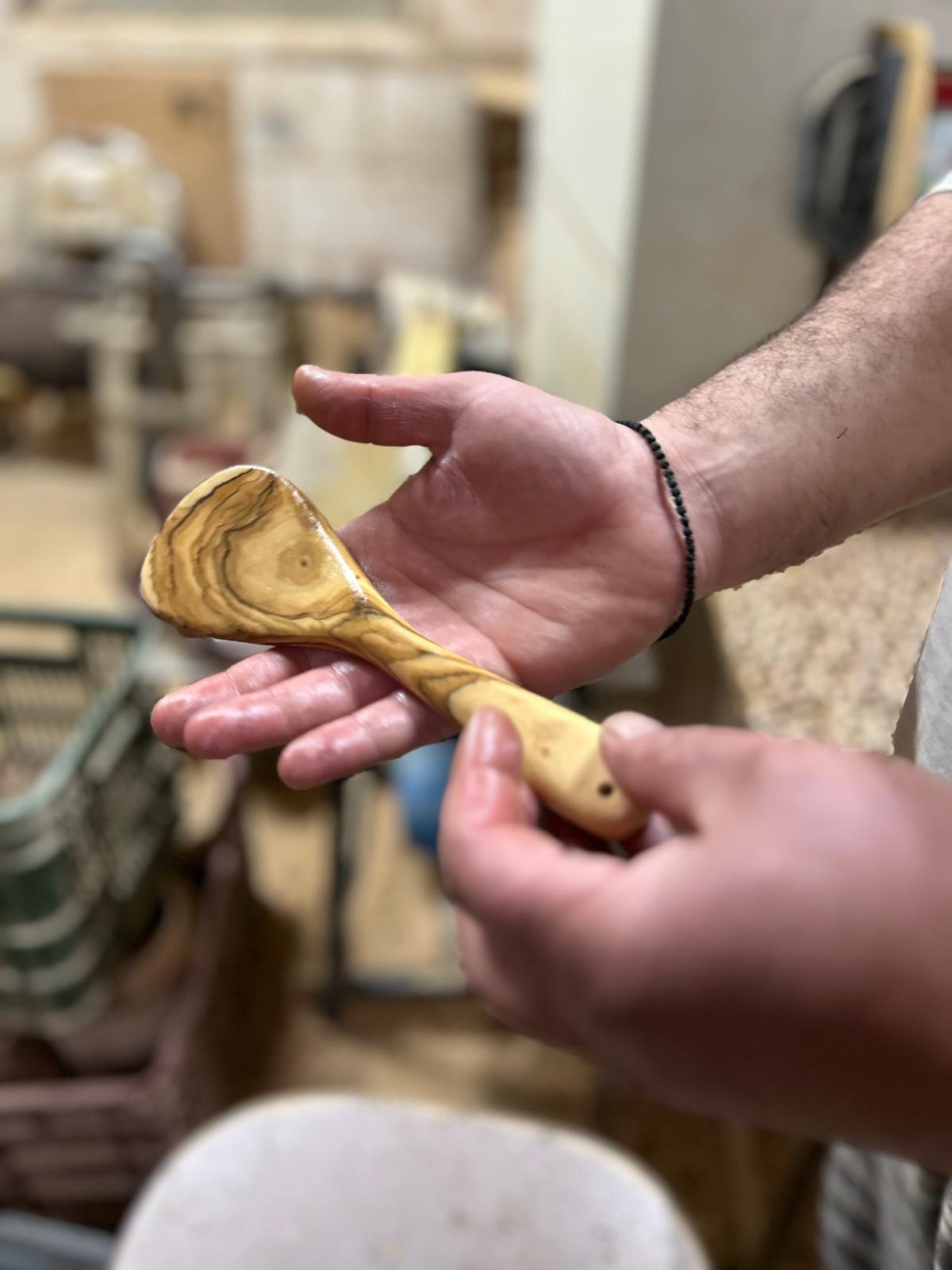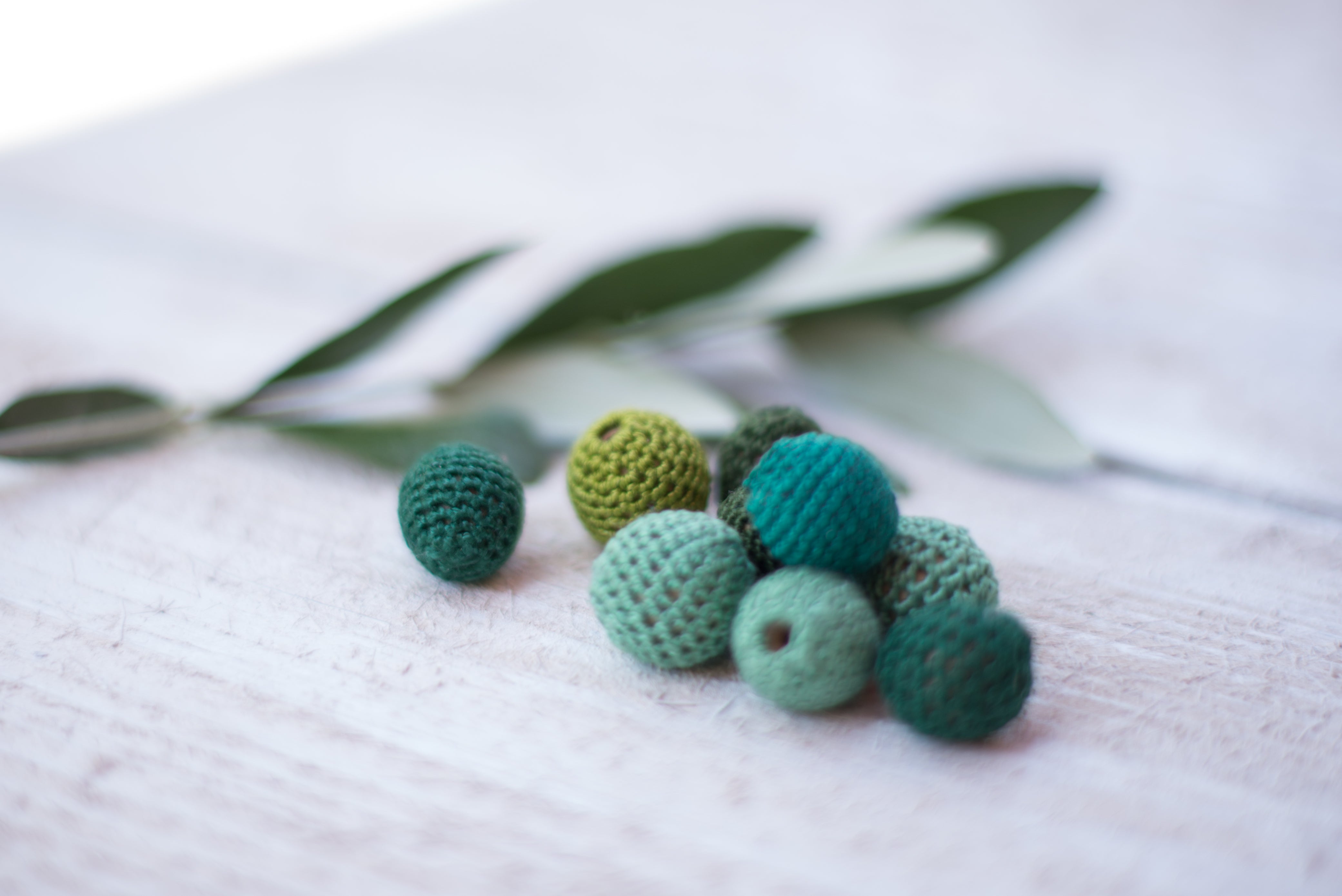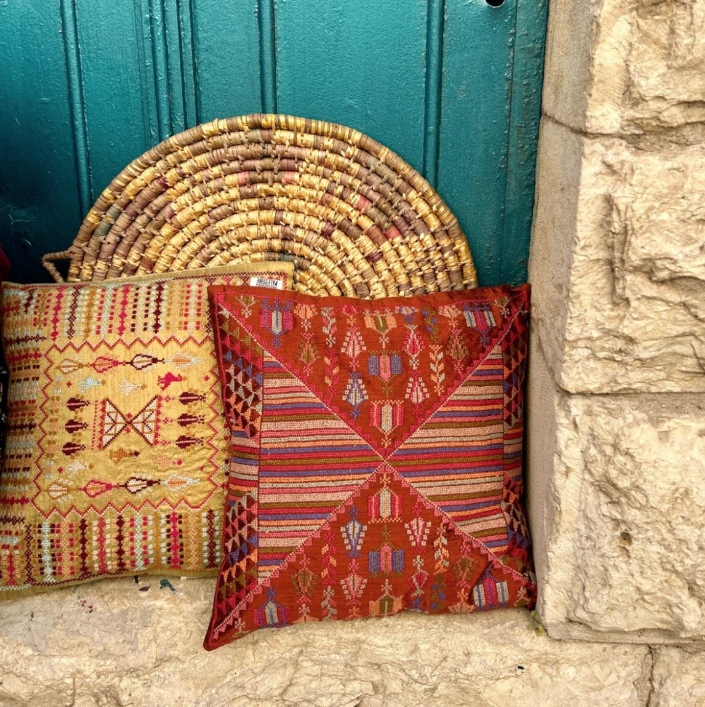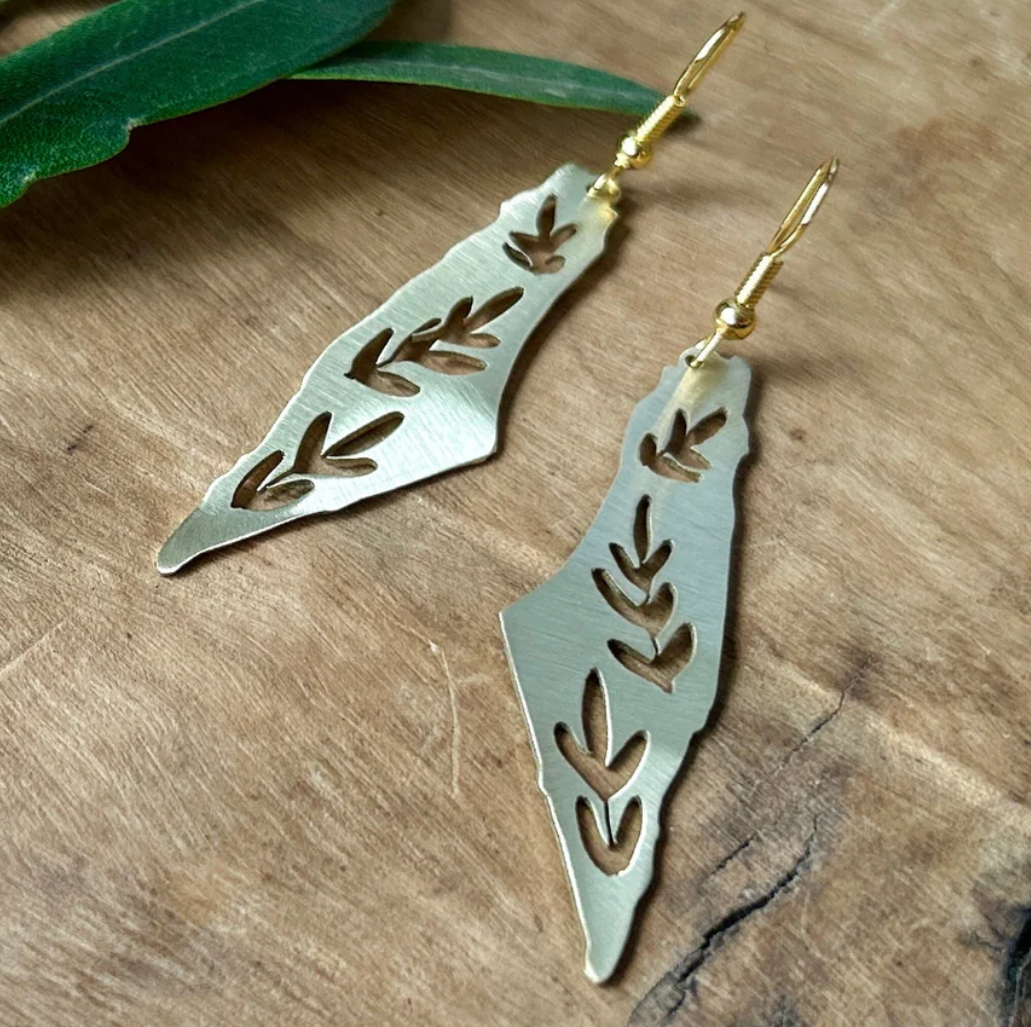
Celebrating Artisans: The Nasrallah Family
Tucked away in the quiet streets of Beit Jala, a small town with a big heart, lies the Nativity Bells Olive Wood Factory. Calling it a "factory" might be a bit of a stretch—this is a small family workshop, often run in the basements of people's houses, where history, tradition, and artistry come together in the most humble of settings.
The Nasrallah family has been handcrafting olive wood products here since 1970. When you arrive at the workshop, you’re greeted by the earthy scent of aged olive wood and the hum of small machines. In front of the entrance, a large chunk of olive wood rests on the steps, a reminder of the raw material that will soon be transformed into something beautiful. Inside, the floor is carpeted with sawdust—each step is soft and gritty, and the craftsmen wear it like a badge of honor.

Outside, children play and ride bikes, their laughter mingling with the steady rhythm of carving tools. There is great pride in these workshops, where craftsmen continue the work of their forefathers.
The workshop is more than just a place of work; it's a living, breathing part of the family’s history. The olive wood used here is aged for three years before it’s ever touched by a carving tool. In a small storage room out back, you can see the wood at various stages of ageing—each piece telling its own story through its changing color and rich, evolving scent.

As we sit down with Ghada Nasrallah, she shares her personal story of joining her husband's family business.
Can you tell us about your family’s history in olive wood carving? How has the craft been passed down through generations?
My father-in-law started the olive wood craft in a workshop near my house, and passed it to my husband to ensure its sustainability. It’s a family business that we rely on for our livelihood. The workshop consists of five people who pour their efforts and expertise into creating great products.
What does olive wood carving mean to you personally?
I love olive wood carving and work on it alongside my husband and family because the craft requires teamwork. Each product goes through several steps, making it a group effort. I also love the smell of olive wood, which reflects a story of resistance on this land.

Can you share a story that highlights the importance of your craft?
During our work, I’ve had many memorable experiences, especially when giving foreign friends and relatives souvenirs from our workshop. They often send me pictures, thanking us for our hospitality and for the opportunity to witness the carving process.
How do your olive wood items contribute to the preservation of Palestinian heritage?
By keeping the craft alive and producing items like kitchen tools, nativities, ornaments, and souvenirs, we preserve our Palestinian heritage.
How does your business support the local community in Palestine?
We support our local community by helping other artisans manufacture items they don’t specialize in.
Where do you source your olive wood, and how do you ensure it’s harvested sustainably?
We personally select our olive wood from the main sources, ensuring it meets the quality requirements of our products.
What challenges do you face as artisans in Palestine, and how have you overcome them?
We face great challenges due to the ongoing political situation. We try to overcome these by nourishing online communication with international markets to support us.
What are your hopes for the future of olive wood craftsmanship in Palestine?
My hope is that we can continue preserving this craft despite the difficult challenges we face in the Holy Land.
How do you see your business evolving in the coming years? Are there new products or markets you’re excited to explore?
As we grow, we welcome new initiatives and ideas. Our craftsmen are always eager to explore contemporary designs and new markets, especially in these challenging times.







Leave a comment
This site is protected by hCaptcha and the hCaptcha Privacy Policy and Terms of Service apply.